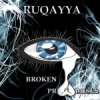| Monday, July 8, 2013 |  |
 |
 |
 |
 |
 |
 
 
 |
 |


 A New Breed of Indie Artists
A New Breed of Indie Artists Free Music and Programs for Radio and Podasters
Free Music and Programs for Radio and PodastersIndie Artists and the Online Radio Industry
|
It wasn't that long ago when we required an adjective for the word "radio." As more auto manufacturers install digital dashboards those words "broadcast," "satellite" and "internet" are not needed; all are beginning to appear as simply a form of "radio." The only people contesting this concept appear to be traditional radio industry gatekeepers. |
"If you're an indie artist that wants to get your music out to more people, don't neglect what online radio offers." |
As it stands today, for indie artists intent on a DIY approach to marketing, the most efficient way to spend time is in getting music played on internet radio stations.
Yes, we have Youtube and SoundCloud, along with numerous other music-based sites. Just check the numbers of views for indie artists of your choice listed on each, though, and it's clear that (in most every case) these postings lead to few people being exposed to the music.
So how does an indie act get noticed today? The bad news is that it's not easier than it was before. The good news is that you have tools you never had before. What many will not consider news at all is how success still depends on talent, work and luck.
I have access to thousands of songs sent to me through Audio Graphics RRadio Music, and I listen to each. An educated guess is that about 10% are knock-your-socks-off music, 50% are good songs (but not spectacular). The remaining require artists to go back for more practice.
RRadio Music is designed as a web site where internet radio programmers go to hear songs they add to their playlist, so it's important for me to increase the percentage of "knock-your-socks-off" and decrease the numbers in each of the other categories.
What's vitally important is that I am able to compile these "great" songs at a fast rate, because stations subscribing to our "Intro to Indie Artists" series of programs want more content. (Since this is a subscription service I need to be concerned with the quality of music making its way into each program.)
Where indie artists come in is to understand that not every song they make is a killer tune, and that being told so doesn't mean they are a bad band. It means create another song.
We're in a different age. The audience has many music options. Programmers, ditto. And independent artists have to do research to uncover exactly where spending their DIY marketing time will do the most good.
Post to Youtube and SoundCloud, just don't forget that there is a large number of stations in the online radio industry devoted to bringing new music to the masses - and by "new music" that means indie artists, not the latest from Maroon 5.
Independent artists have more DIY tools than ever. The audience has more choice than ever. The radio industry - onine and off - has more music petitioned for airplay than ever.
If you're an indie artist that wants to get your music out to more people, don't neglect what online radio offers.
Find the most efficient way to get your music to stations willing to play it, because it's those stations' audiences who are listening specifically for new artists - and the next one they attach to could very well be you.
Today's indie artist introduction to internet radio is...
| New Pop from RuQayya |
 sample song |
Broken Promises Download Song
|
Give RuQayya "Broken Promises" a listen.
Add it to your station playlist, free! Such is the new world of music distribution.
It's time internet radio programmers reach into a huge pile of untapped talent.
It is here where new hit songs will increasingly be found.
More Articles
 |
 |
 |
comments by Disqus |



